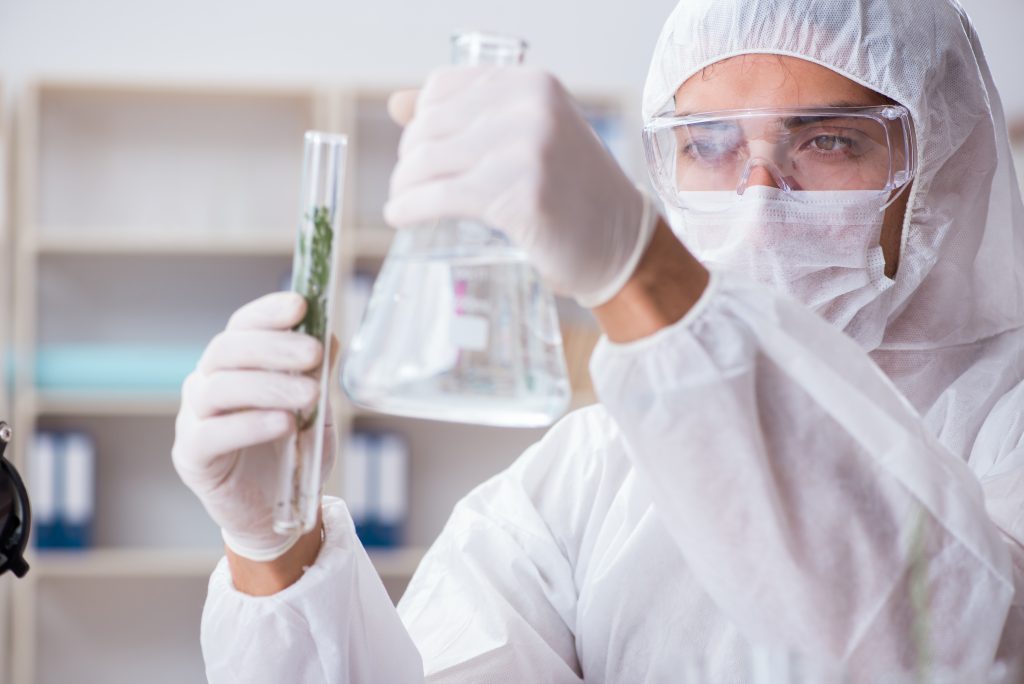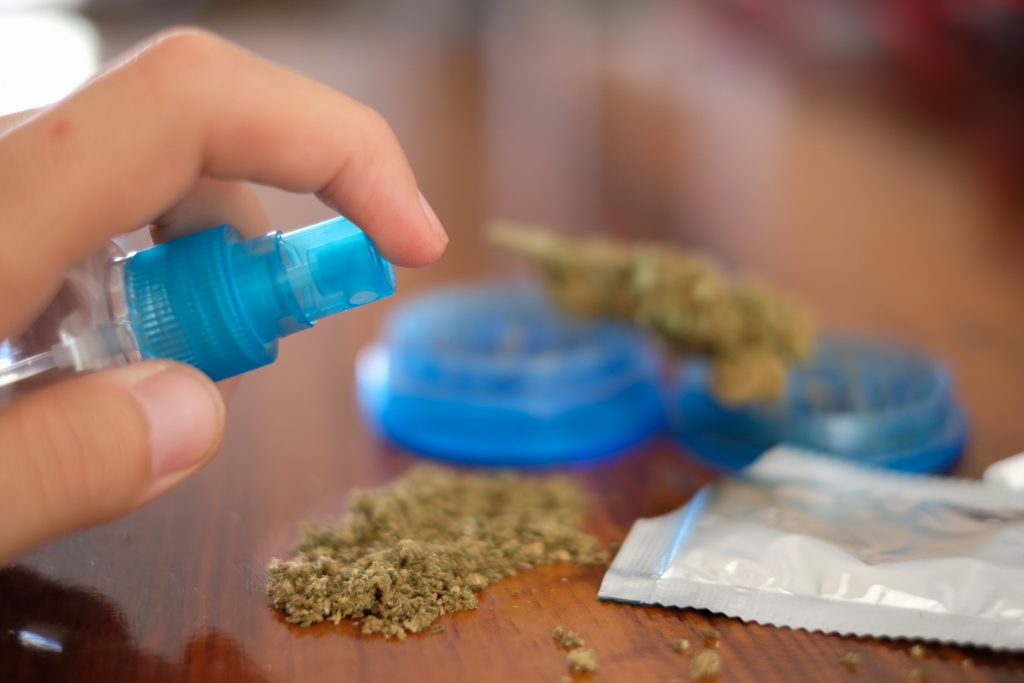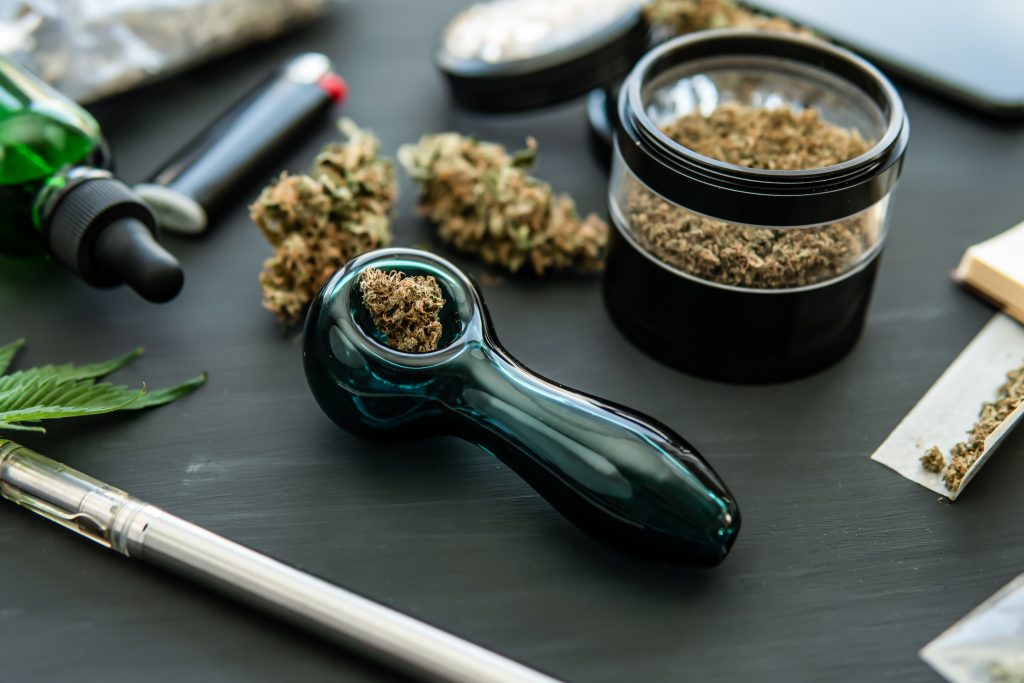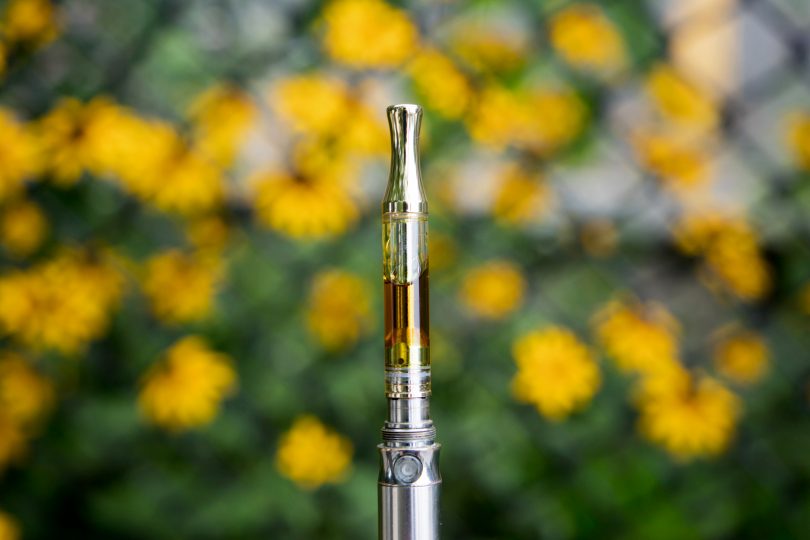There’s a lot that’s said about cannabis synthetics by different governments, and there’s accumulated information from many years of use by individuals. Sometimes, these two things don’t actually go together. Whereas tons of government smear campaigns are designed to cause fear in users over synthetics, I do not necessarily agree with any of this. As someone with a decent amount of experience with them, I’m more than happy to explain. Here is my own personal experience using cannabis synthetics.
While I have my own personal experience, the debate still rages on about cannabis synthetics. And we haven’t actually answered the question yet of whether delta-8 THC fits in this category. As a naturally occurring alternative to delta-9, delta-8 provides users with slightly less psychoactive effect, while also producing less anxiety and without sapping all a user’s energy. Synthetic or not, delta-8 provides a highly valuable experience which is great for both medical and recreational users. Test it out for yourself! We’ve got an array of delta-8 THC, delta 10, thcp, thco, thcv and even hhc deals, along with plenty of other compounds, for you to go ahead and get started.
What are cannabis synthetics?
This is an interesting question, but the answer is twofold, confusing (possibly deliberately), and devoid of much sense. However, having said that, my own experience is twofold, and most certainly describes why caution should be taken with cannabis synthetics. A synthetic cannabinoid, is a cannabinoid that either doesn’t exist in nature, and therefore must be created in a lab; or which does exist in nature, but in such small amounts that in order for human use, it must be synthesized in a lab to create enough for production. This latter point is indeed up for debate. Whether a synthesized version of something that does exist in nature, should be considered a synthetic, has not been 100% established, partially leading to the discrepancy in legalities when it comes to compounds like delta-8 THC.
So, to dive in, there are two kinds of synthetics, legal ones, and illegal ones. Legal synthetics are a part of the government authorized pharmaceutical industry that has sprouted up in response to cannabis legalizations. In America, the trend with legal synthetics started well before any medical or recreational legalizations, and began with the approval of Marinol (dronabinol) in 1985. The array of pharmaceutical – and therefore legal – synthetics, include Marinol, a synthetic of THC, Epidiolex, a cannabis -derived medicine based on CBD (with questions as to how synthetic it is), Sativex (Nabiximols), a synthetic based on THC and CBD, and Nabilone, another synthetic THC.
The one thing the medicines I just listed have in common, is that they are all approved legally for use by several different governments. This has not stopped governments, like France‘s, from trying to block out natural products in favor of the pharmaceutical version, even going as far as causing a whole lawsuit with the EU, just to protect pharmaceutical interest. We can all be glad that France didn’t win. When searching on the internet for ‘cannabis synthetics’, you’ll find something interesting, none of these show up, even though they are all examples of synthetic cannabis medicines. Your search results have been censored to only show illegal drugs when using those words.

On the other end are the illegal synthetics, which often get names like K2 and Spice. The funny thing though, is that these synthetics are directly based off of synthetics made by official cannabis researchers in the mid-1900’s when cannabis compounds were first being studied and mapped out. In fact, the main synthetics are actually based off of HHC, a compound that can be found on dispensary shelves itself, though its own legality is in question. It was, of course, studied by the government at one time, and tested for safety – which it showed to be. That it wasn’t used by the government has little to do with the fact that years after testing HHC, similar compounds were found on the black market.
According to the government, these untaxable black-market versions are considered dangerous, even though they are essentially the same as compounds discovered by the government and deemed safe. And according to the government, the only way for a synthetic to be safe, is for it to come from a taxable pharmaceutical company. Meaning while the government continues to demonize other government-made synthetics that simply are under no law for use at the moment, out of the other side of its mouth, its telling you that synthetics are not only just fine, but even preferable to the natural plant.
My experience with cannabis synthetics – flowers
My two modes of experience with synthetics come from smoking fake flowers, and from vaping synthetic vapes. As synthetic products are made to resemble the real ones, and don’t come with any accurate product labelling, I would never be able to say exactly which synthetics I’ve used. I can, however, say that my experiences are relatively consistent (on certain fronts), and my assumption when writing this, is that I likely used the popular forms of illegal synthetics that are around, namely K2 and Spice, which themselves denote ‘illegal synthetic’ more than anything with further specificity.
Now, to call the synthetic flowers I smoked, ‘flowers’, is disgraceful to actual cannabis flowers. The main brand of synthetic I smoked was called Mr. Niceguy, and this occurred in Israel from about 2010 to 2012, or so. At the time, it was actually very difficult to find weed in Tel Aviv, and Mr. Niceguy filled the gap. It appeared as crushed up leaves for the most part, nothing particularly cannabis-like about it. This makes sense as the synthetic is generally sprayed on. I found the effects of the synthetic to be consistent. I would get high, but it never felt exactly the same, or had the same intensity. It never made my head as cloudy as standard weed, but it definitely did get me high.
I will never say I consider this practice to be safe. By the end of my experience with it, I had tried another brand called Smart Joker, and this is where my bad experience came in. The problem with spraying a synthetic on leaves, is that where those leaves come from, and what else might be on them (fertilizer, pesticides, rat poison…) are not accounted for. So while the synthetic cannabis might not have been an issue (I honestly can’t say what the issue was for sure), the idea of random and unregulated chemical additives likely did become an issue.
I thought I was going to have a heart attack, and not in the standard THC overdose way. My heart began increasing in speed, and I began to lose the ability for motor control, to the point it became hard to control my body. It felt very much like being on a roller coaster that went out of control. Something was effecting me, and causing a massive speed-like response to my system. I happened to have a prescription for a light benzodiazepine, and in my somewhat-limited-understanding of the time, I did know that a benzo can often relieve other bad symptoms, especially those of an upper out of control.

I was able to get enough inside me to stop the reaction, and bring myself back down. I do not know what would have happened if I had not been able to get to that medication in time, and I still find the whole experience to be one of the most frightening I’ve had. When there is talk of synthetics being dangerous, this is always the memory that comes to mind. And though I don’t automatically blame the actual synthetic, I am more than aware that I likely inhaled a very bad chemical that was also on the material. Having said all this though, about 99% of my experiences were not negative, and while everyone I know was smoking the stuff, I only heard of one other issue like mine. Meaning numbers-wise, the level of injury was incredibly low, and most likely not related to the synthetic itself.
My experience with cannabis synthetics – vapes
These days, the more relevant experience has to do with the synthetics used in cannabis vapes, as they are the popular product at the moment where synthetics can often be found. They also propose a different set of issues. Things like pesticides, rat poison, and fertilizers might not be an issue, but with vapes, we need to worry about chemicals used to thicken, or stabilize, or flavor, or preserve the oil, which much like with the additives on fake flowers, come with their own risks.
I have bought plenty of real vapes, but I’ve also bought vapes off the street and from illegal dispensaries. The one I have right now claims to be California Gold brand, Cherry Zkittles distillate, with 90% THC. I can smoke it all day and still get my work done and workout, two things that would never be possible for me if this cartridge was what it says it is. What it feels like, is exactly what I used to buy off the streets. It gives the same subtle high, but without messing with my head too much, and it’s rather short-lived. Basically, it feels like a less intense form of THC, and without other peripheral effects, much like what HHC was established for. It’s not bad, per say, but it certainly lacks the intensity I was hoping for. I don’t even know if I’d call it a sativa or an indica, because it doesn’t feel like either, and no synthetic I’ve had, ever did.
Now, in terms of safety, I can only tell you what I experienced. I can’t say if something I breathed in might cause cancer later, or if it damaged my throat or lungs more than a vape should have. But I can tell you how it feels. I find a lot of vapes can be harsh on the throat, which I do expect has to do with the heat and chemicals. Some vapes are smoother, which would indicate the chemicals used within do make a difference. For example, a real full flower cannabis oil cart won’t need flavoring, which means that’s one set of chemicals less.
I don’t know what hurt people in the past. No one really does, to be fair. There were so few actual injuries (despite government claims to inflate the problem), that its hard to know why. If vitamin-e-acetate was really the problem, and if it was widely used (maybe still is), then the death count would be much higher. That as few deaths as 68 have been confirmed in the US, from the advent of vaping to early 2020, due to vapes, says something about the actual level of danger. If vitamin-e-acetate is the biggest issue, then there doesn’t seem to be an issue.
In fact, with such few actual cases of injury and death, it presents as isolated incidences where a batch used an alternate chemical from the norm, thus causing these experiences. This mirrors my experience from above, as well as the nature of the history involving injury with cannabis synthetics. The one thing I can equivocally say for sure, is that I have harmed my body far less, (by ridiculously massive margins), by vaping over smoking. And as an asthmatic, I can also say this with complete medical certainty, as I have dealt for years with the damage due to smoking. And this means everything to me and my health.

How to tell a synthetic cart from a real one
If you’re wondering how to tell the difference between a fake vape and a legit one, there are a few ways. For one, fake products usually have minor flaws or inconsistencies in packaging. If you are unsure if you have a real product, look up the specifics for that product and all the details in packaging. See if you can find subtle differences, but be careful, fakes operations are getting incredibly good at recreating accurate packaging, even down to test result claims, and the inclusion of QR codes. Next, synthetics will generally only be of distillates, not of full flower oils. The reason for this is that in real cannabis oils, the weed can be tasted, and that can’t be faked.
Since distillates have everything removed other than a specific cannabinoid like THC, there is no flavor to them. This means both distillates and synthetics (which have no flavor), require the same kind of flavoring chemicals, and will therefore taste the same, and never like real weed. If you ever by a full-flower vape oil that tastes like fake flavoring, it’s likely fake. The last thing to consider, is how it makes you feel. If you buy a distillate of a heavy indica, which claims 90% THC, that stuff should seriously weigh you down. Your mind should be cloudy, your body stuck to whatever it’s sitting on, and your mental processes slowed. If you get a semi-high without that intensity, its not real. In fact, if you can vape on that, and on one sold as a sativa, and get the same experience, it’s likely synthetic.
Synthetics don’t come with ranges, and you can’t pick what you’re getting. In my experience they feel about the same, and the high is – much like HHC was produced for, sort of minimalized. HHC was developed to be a paired down version of THC without any extra bells and whistles. It was meant to activate receptors and nothing else. Which is why the high is less extreme, almost in the periphery, and a lot can be smoked without causing THC sickness. If you find that you’re trying different distillates, and they all feel about the same, they’re probably synthetic.
Conclusion
While I can give my experience with cannabis synthetics, it’s not for me to tell anyone what they should feel comfortable with. As with anything else, I always implore others to do their own research, but to do it with eyes open. If something doesn’t make sense, question it. If something seems wrong, try to figure out why it’s being said. Most of all, use logic in life. If a story simply doesn’t make sense, there’s usually a reason, and that reason is 99.9% of the time monetary. But having said all this, also be aware of real dangers, and the things you can do to minimize your own exposure to bad products. These are huge industries that depend on you thinking a certain way to sell products. So do the best thing for yourself, and be your own informed buyer.
Welcome all! You’ve made it to CBDtesters.co, the ultimate one-stop-shop for all the most relevant and thought-provoking cannabis and psychedelics-related news globally. Read-thru the site on a regular basis to stay informed on the constantly changing world of legal drugs and industrial hemp, and make sure to sign up for our newsletter, so you never miss a single thing.
Disclaimer: Hi, I’m a researcher and writer. I’m not a doctor, lawyer, or businessperson. All information in my articles is sourced and referenced, and all opinions stated are mine. I am not giving anyone advise, and though I am more than happy to discuss topics, should someone have a further question or concern, they should seek guidance from a relevant professional.









